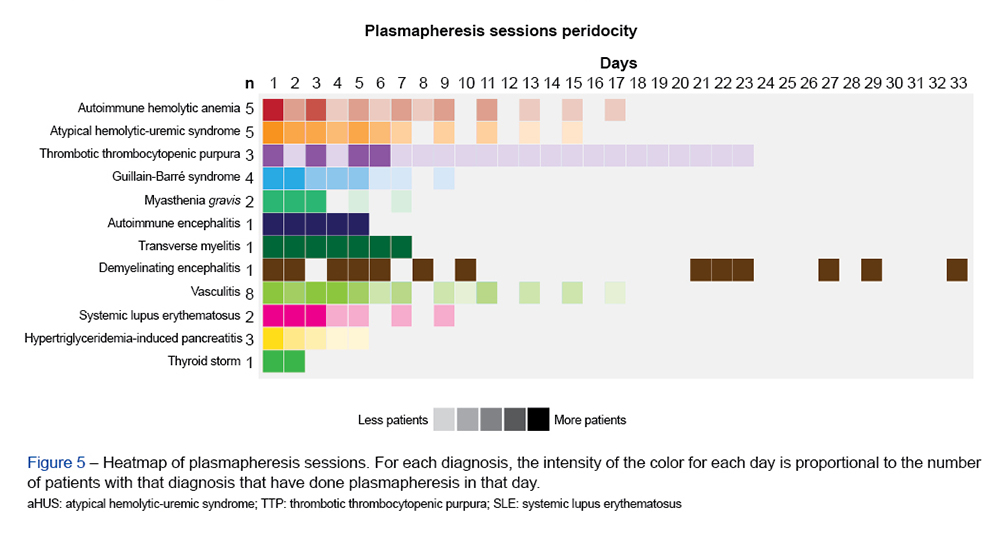SOCIAL MEDIA
Portuguese Medical Association's Scientific Journal

Introduction: Therapeutic plasmapheresis is a therapeutic procedure in which the patient’s blood is passed through a medical device which separates out plasma from other components of blood. The plasma is removed and replaced with a replacement solution. Studies on the use of plasmapheresis in critically ill patients are scarce. The aim of this study was to review all therapeutic plasmapheresis sessions carried out in the Hospital Beatriz Ângelo intensive care unit.
Material and Methods: An observational retrospective study was conducted between April 2012 and March 2019. All patients who underwent therapeutic plasmapheresis in the intensive care unit were included, and plasmapheresis sessions held outside the intensive care unit were excluded.
Results: Of 46 patients, 63% were men (n = 29), with a median age of 53 years. The most frequent diagnoses were hypertriglyceridemia-induced pancreatitis, vasculitis, autoimmune haemolytic anaemia, and atypical haemolytic-uremic syndrome. A total of 198 plasmapheresis sessions were carried out in the intensive care unit. Most of the used replacement solutions were fresh frozen plasma (34.4%), albumin/crystalloid (24.2%), and albumin/fresh frozen plasma (19.2%). The most common complications were hydroelectrolytic changes (84; 42.4%) and coagulation disorders/thrombocytopenia (65; 32.8%). There was no need to interrupt any plasmapheresis session due to complications related to the patient.
Discussion: Therapeutic plasmapheresis is an urgent procedure that can reduce morbidity and mortality in critically ill patients. This justifies that 37% of patients started the technique before the diagnostic confirmation. The indications for plasmapheresis and the choice of replacement solution were in agreement with the guidelines. Despite the risk of bleeding, no haemorrhagic complications were recorded.
Conclusion: Therapeutic plasmapheresis is a complex technique that requires specific training. The indications are diverse, and some are not consensual. Complications were frequent, but they did not increase morbidity.